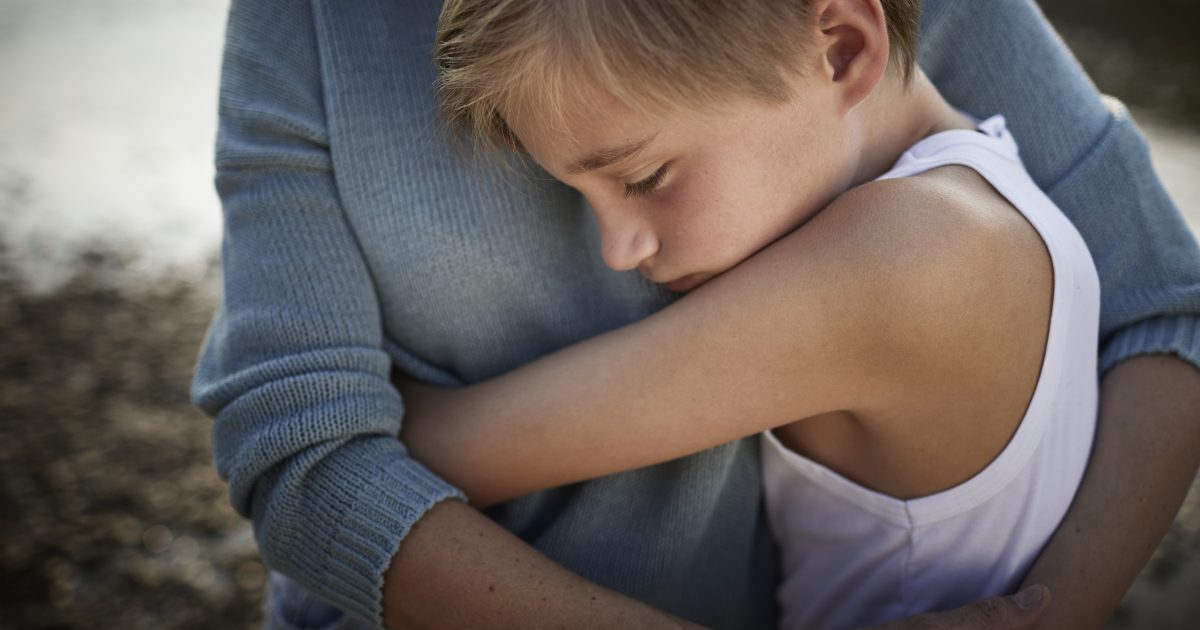Beating the Unbeatable
- Jennifer Hendricks-Fogg has made the brave decision to open up about one of the most intense and trying experiences of her life: her young son's battle with brain cancer.
- When he was just three months old, Logan Hendricks-Fogg was diagnosed with a rare kind of brain tumor called congenital glioblastoma.
- Through years of chemotherapy and a long list of operations, Logan just keeps on fighting. His mother’s book discusses the importance of faith and the challenges of supporting a child through cancer.
When he was just three months old, Logan Hendricks-Fogg received a terrifying diagnosis. He had congenital glioblastoma. This rare kind of brain tumor occurs in infants, and the prognosis is not hopeful. But through years of chemotherapy and a long list of operations, Logan just keeps on fighting.
Read MoreJennifer Hendricks-Fogg’s Book and the Power of Faith
Now, Jennifer is opening up to the world about what her son's fight against cancer has looked like from her perspective. Hendricks-Fogg's book is called Tiny Miracles, and it explores the way that the Hendricks-Fogg family leaned on their faith in a time of fear and uncertainty. The book shows the importance of remembering to take care of yourself even while you are supporting someone else through a life threatening disease.
She hopes that her perspective can help other parents who may have to lead their young children through an unimaginable battle. She also found that writing the book helped her. Putting the experience down on paper helped her better understand the challenges she faced, and how her family pushed through them.
"It's not just about childhood cancer," she said. "It's about resiliency. And so matter what life throws at you, you have the power to overcome it."
The Power of Faith in Fighting Cancer
During a cancer fight, it's important to find ways to cope with the complex web of feelings you may be experiencing.
According to the US Centers for Disease Control and Prevention (CDC), 69% of cancer patients say they rely on their faith to get them through cancer treatment and pray for their health.
For many people, turning to faith has helped them keep their spirits high and continue fighting through cancer. This was the case for ovarian cancer survivor Monica Layton, whose church congregation helped her both spiritually and physically as she battled cancer during the COVID-19 pandemic and then went through recovery.
"My Faith Has Been Very Important" The Story of Louisville Ovarian Cancer Survivor Monica Layton
"[I've] gone to the same church for a long time, so it's like another family that really supports me," Layton told SurvivorNet in a previous interview. "We're Episcopalian, and when I was having surgery my priest came to the hospital and stayed and prayed with my family the whole timeand it was a long surgery. And then he came back to the hospital every day to pray with me."
In addition to praying for her, Layton's church also sent gifts of encouragement such as flowers, cards, a prayer blanket, and constant visits. No matter where she was, Layton constantly felt supported by the people in her church. "They were so kind. I think my faith has been very important, crucial for me. Just the prayer really helps, I think," Layton said.
Caring for a Child with Cancer
Another friend of SurvivorNet, Jayne Wexler, has a deep understanding of the challenges of managing the simultaneous roles of mother and cancer caregiver. Her son, Justice, was also diagnosed with acute lymphoblastic leukemia, but he has since recovered. In a previous interview with SurvivorNet, she explained how she managed to be a mother and a caregiver all at once.
"I Try To Stay Strong, But Sometimes You Need To Cry": Playing The Role of Cancer Caregiver and Mom
"Being a caregiver is a huge job," Wexler said. "Fortunately, my husband and family were very supportive … it's really hard to see your child go through this. If it could be me, I would take it in a second. You just go on auto-pilot and you just do what you have to do."
But that doesn’t mean it was always easy. Wexler admitted that as a parent caring for a child with the disease, you don’t have a lot of time to sit down and deal with your own emotions.
"You don't have that much time for yourself," Wexler said. "I try to stay strong, but then sometimes you just want to go and cry, and you need to cry… it's good to cry."
The survival rate for children with cancer has improved an incredible amount over the past few decades, but pediatric cancer is still a brutal experience for a family to go through. In her own caregiving experience, Wexler found therapy to be an important outlet for processing everything happing to her family. Regardless of whether it’s therapy or participating in your favorite activities or something entirely different, it is important to find ways to also take care of yourself as you’re taking care of your child.
Learn more about SurvivorNet's rigorous medical review process.

